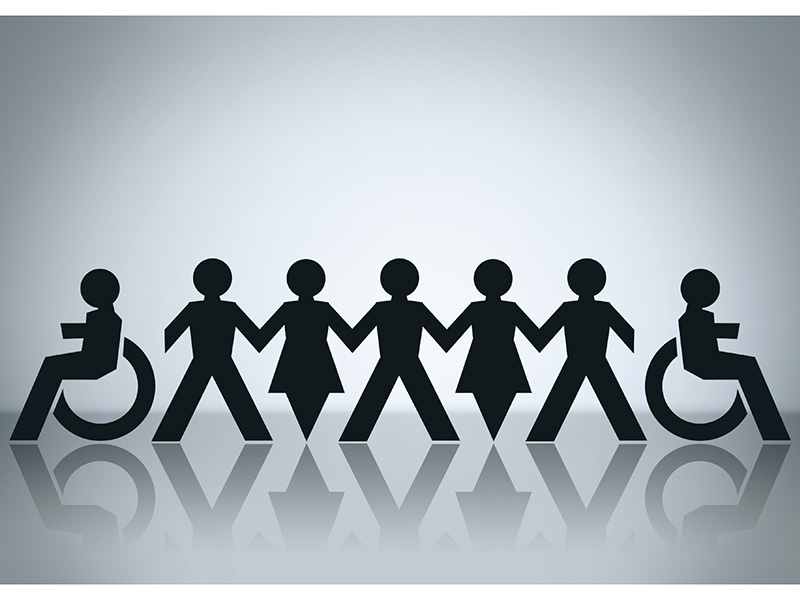Since 2009, North American Jewish Communities have been celebrating Jewish Disability Awareness Month in February. Now known as Jewish Disability and Inclusion Month (JDAIM), it is an opportunity to celebrate our commitment to removing barriers, celebrating diversity and connecting with our Jewish values, the most fundamental of which speaks of our obligation to recognize, in every human being, the image of the Divine.
Anticipating JDAIM this year. I reflected on two powerful images that I encountered over the course of the past six months, one conjuring exclusion and derision, the other inclusion and respect.
There first was memorably described by Meryl Streep when she accepted a Golden Globe Award in January of this year. Streep said, “There was one performance this year that stunned me,” [...] “It sank its hooks in my heart. Not because it was good. There was nothing good about it. But it was effective, and it did its job. It made its intended audience laugh and show their teeth.
“It was that moment when the person asking to sit in the most respected seat in our country imitated a disabled reporter. Someone he outranked in privilege, power and the capacity to fight back. It kind of broke my heart when I saw it. I still can’t get it out of my head because it wasn’t in a movie. It was real life.”
Streep was referring to Trump’s remarks during the campaign, when he appeared to mock New York Times reporter Serge F. Kovaleski, who has arthrogryposis, which visibly limits the functioning of his joints.
“And this instinct to humiliate, when it’s modeled by someone in the public platform, by someone powerful, it filters down into everybody’s life, because it kind of gives permission for other people to do the same thing,” the actress said.
The other image is a simple but eloquent one, a photo I found on a website on Jewish perspectives on disability and inclusion that depicted a Chanukah dreidel with Braille letters, enabling those without sight to join in the game. It’s message is the polar opposite of the image conjured up by Meryl Streep and which is burned into my memory.
Jewish Disability and Inclusion Month is an annual event because we need continual reminding of our sacred obligations towards others who are differently-abled. This obligation begins with every of us, extends to our family and friends, our community, our nation and the world of difference in which we live out our lives. If we cannot look to our leaders to serve as role models, then our responsibility is even greater to help create a society that champions inclusion and meaningful support for people with disabilities.
Reb Elias



